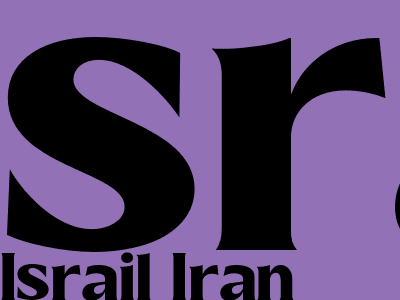
Unveiling the Israel-Iran Conflict: A Comprehensive Analysis
Background and Historical Roots
The conflict between Israel and Iran has a complex and multifaceted history. Tensions between the two nations stem from a combination of religious, political, and territorial factors.
In the aftermath of the 1979 Iranian Revolution, relations between Iran and Israel deteriorated significantly. Iran became a stronghold of Islamic fundamentalism, while Israel, a Jewish state, became a target of anti-Semitic sentiment.
Escalating Tensions and Regional Rivalries
Since the 1980s, the conflict has escalated due to several factors:
- Iran's alleged support for terrorist groups like Hezbollah and Hamas, which have launched attacks against Israel. - Israel's involvement in military actions in Lebanon and Gaza, which have led to casualties on both sides. - The contest for regional hegemony between Israel and Iran, with both countries vying for influence in the Middle East. - The development of Iran's nuclear program, which Israel views as a threat to its existence.International Diplomacy and Attempts at Resolution
The international community has made several attempts to resolve the conflict through diplomacy and negotiations. However, efforts to establish a lasting peace agreement have been unsuccessful.
Humanitarian Impact and Regional Instability
The ongoing conflict has had devastating humanitarian consequences, particularly in the Gaza Strip. The blockade imposed by Israel has led to shortages of food, medicine, and other essential supplies.
Furthermore, the conflict has destabilized the region, contributing to violence and displacement. It has also hindered economic development and cooperation in the Middle East.
Prospects for Conflict Resolution and Future Outlook
Prospects for resolving the Israel-Iran conflict remain uncertain. However, ongoing efforts by regional and international players may provide some hope for a peaceful resolution.
- Dialogue and Diplomacy: Engaging in direct negotiations and dialogue between the leaders of Israel and Iran could pave the way for a diplomatic solution. - Regional Cooperation: Encouraging cooperation between Israel and its Arab neighbors could create a climate conducive to peacemaking. - International Consensus: A unified stance from the international community, including pressure from the United States, could influence the behavior of both Israel and Iran. - Confidence-Building Measures: Implementing confidence-building measures, such as prisoner exchanges or arms control agreements, could reduce tensions and create a basis for trust.